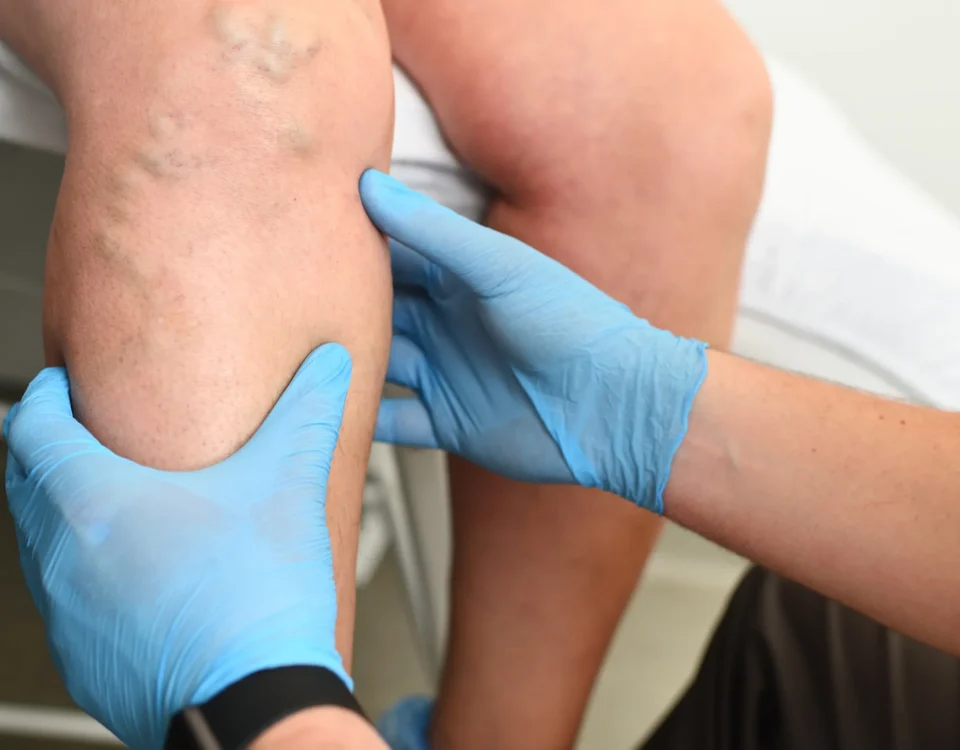
How Does Testosterone Replacement Therapy Work?
October 3, 2025
Using Botox for Migraine Management
October 3, 2025Vascular disease affects the circulatory system, which includes the arteries, veins, and capillaries that carry blood throughout the body. Certain lifestyle habits can influence the health of this extensive network. Here are several lifestyle factors associated with vascular health. Understanding these connections will help you make more informed decisions about your daily routines.
Maintaining a Balanced Diet
The foods you eat play a significant role in your cardiovascular health. A diet high in saturated fats, trans fats, and sodium can contribute to conditions like high cholesterol and high blood pressure, which are risk factors for vascular disease. Over time, high cholesterol leads to the buildup of plaque in the arteries, a condition known as atherosclerosis. This buildup can narrow the arteries and restrict blood flow.
To support your vascular system, adopt a diet rich in fruits, vegetables, whole grains, and lean proteins. Foods rich in omega-3 fatty acids, such as salmon and flaxseed, as well as those containing monounsaturated fats, like avocados and nuts, are often beneficial. Limiting processed foods, sugary drinks, and excessive salt intake can also help manage blood pressure and cholesterol levels, promoting better circulatory health.
Incorporating Regular Physical Activity
A sedentary lifestyle is a significant factor that negatively impacts vascular health. When physical activity is lacking, it leads to poor circulation, obesity, and high blood pressure, all of which put strain on the vascular system. These conditions increase the risk of heart disease and other related health issues.
Regular exercise plays a key role in maintaining vascular health. It helps improve circulation, supports healthy weight management, and lowers blood pressure. Experts recommend 150 minutes of moderate-intensity aerobic activity or 75 minutes of vigorous-intensity aerobic activity per week. Activities such as brisk walking, swimming, cycling, or jogging are excellent options to meet these goals.
Even small lifestyle changes can make a big difference in boosting physical activity. Simple habits such as taking the stairs instead of the elevator or going for a short walk during lunch breaks contribute to a more active lifestyle. Incorporating these small efforts into your daily routine can significantly benefit your overall vascular health.
Avoiding Tobacco and Alcohol
Tobacco use is one of the most significant risk factors for vascular disease. The chemicals in tobacco smoke damages the lining of your blood vessels, which leads to the narrowing of arteries and increases the risk of blood clots. Smoking also raises blood pressure and reduces the amount of oxygen your blood is able to carry. Quitting smoking can significantly improve your vascular health and reduce your risk of complications.
Excessive alcohol consumption also has a negative impact. Drinking too much alcohol can raise blood pressure and contribute to weight gain, both of which are risk factors for vascular disease. If you choose to drink, it is advisable to do so in moderation. This is defined as up to one drink per day for women and up to two drinks per day for men.
Take Steps to Avoid Vascular Disease
Your lifestyle choices directly impact your vascular health. Focusing on a balanced diet, regular physical activity, and avoiding tobacco supports your circulatory health. If you have questions about your health, speak with a healthcare provider for personalized guidance. They can help you make healthy lifestyle changes.




